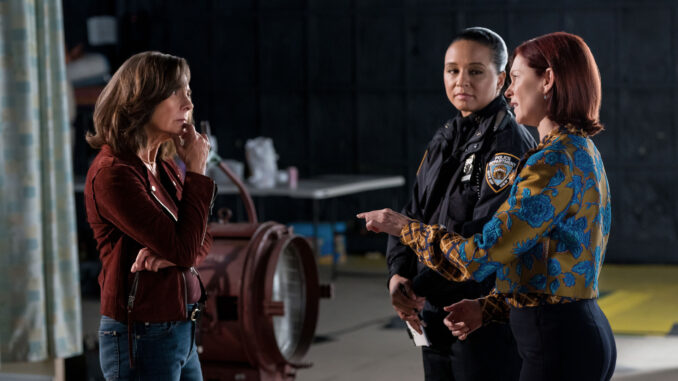
Elsbeth Season 2 Preview: The Clever Plot Twist That Changes Everything
The vibrant, often absurd, and utterly charming world of Elsbeth Tascioni burst onto our screens like a rogue sparkler at a sophisticated dinner party, illuminating the mundane with her singular brand of observational genius. Season one left us not just entertained, but profoundly curious about what new delights, and what hidden depths, awaited the titular, delightfully off-kilter attorney-turned-investigator in the concrete jungle. As we eagerly anticipate Elsbeth Season 2, the whispers from the fictional writers’ room suggest a deepening of character, a sharpening of stakes, and a clever plot twist so elegantly embedded, it promises to recontextualize everything we thought we knew.
Season 2, one imagines, would open with Elsbeth a touch more acclimated, yet no less Elsbeth. The iconic brightly colored ensembles would remain, perhaps even bolder, mirroring a slight increase in her confidence navigating the labyrinthine complexities of New York City and its even more labyrinthine criminal underbelly. Her bond with Officer Kaya Blanke, initially one of bemused tolerance, would have solidified into something akin to a familial, albeit perpetually exasperated, partnership. Kaya, now more attuned to Elsbeth’s peculiar rhythms, might even anticipate her leaps of logic, offering a grounded counterpoint to Elsbeth’s aerial view of a crime scene. The show’s signature “inverted detective” format – where we know the killer from the outset – would continue to shine, allowing us to revel in Elsbeth’s unique journey of uncovering the meticulously hidden “how” and “why,” often through details others deem utterly irrelevant. Yet, beneath the surface of quirky charm and brilliant deduction, a persistent hum of unresolved tension would grow louder: the looming federal investigation into Captain Wagner, Elsbeth’s genial mentor and protector. This undercurrent, initially a background hum, would swell into a palpable threat, raising the stakes not just for Wagner, but for Elsbeth’s very place in New York.
And it is precisely this simmering subplot that forms the fertile ground for the Season 2 twist, a narrative pivot so deceptively simple, yet so profoundly impactful, it recasts Elsbeth’s entire journey in a new, more poignant light. The clever plot twist that changes everything? Elsbeth Tascioni was never truly sent to New York as a mere “observer” or for “disciplinary” reasons; she was a meticulously crafted, unwitting pawn in the federal investigation against Captain Wagner from the very beginning.
Imagine the scene: It’s late in the season, perhaps a penultimate episode. The pressure on Wagner is immense, walls closing in. Elsbeth, in her usual, earnest way, attempts to help, offering advice and support. Then, a seemingly innocuous detail from her past, a throwaway line, a memory of a meeting, or a specific instruction given to her before she left Chicago, suddenly clicks into place. It’s not revealed by a grand monologue or a dramatic confrontation, but through a quiet, devastating realization. Perhaps Elsbeth recalls a seemingly random request from the U.S. Attorney’s office in Chicago to “observe and report on departmental morale” in the NYPD, a task she diligently, innocently performed, sending back detailed, unvarnished assessments of Wagner’s leadership style, his interactions, and the general atmosphere he cultivated – all of which, unknowingly to her, were interpreted as evidence of a pattern of behavior the feds were building a case around. Or perhaps, it’s a line from a conversation with the mysterious “Mother” (her unseen, all-knowing handler back in Chicago) that, when replayed in her mind, gains a chilling new context: “Just be Elsbeth, dear. That’s all they’ll need.”
This revelation wouldn’t just be a plot twist; it would be a seismic shift in the show’s emotional landscape. Suddenly, Elsbeth’s initial “fish out of water” status gains a heartbreaking layer of manipulation. Her genuine affection for Wagner, her attempts to understand him and their shared world, would be tainted by the bitter irony of her unintentional betrayal. The very innocence and observational acuity that make her brilliant would have been weaponized against her, and against a man she grew to respect.
The implications ripple outward. For Wagner, it’s a profound betrayal, transforming his trusted, if eccentric, confidante into an unwitting agent of his downfall. For Kaya, it forces a difficult choice: does she protect the Captain she respects, or the odd, brilliant woman who has become her friend, even if that woman was a tool? For Elsbeth herself, the realization would be shattering. Her world, built on a foundation of literal truth and genuine human connection, would suddenly reveal itself to be a carefully constructed stage, her role manipulated from afar. It would test the very core of her optimism, her faith in the inherent goodness of people, and her belief in the clarity of facts.
This twist doesn’t just raise the stakes of Wagner’s investigation; it elevates Elsbeth from a clever procedural into a nuanced character drama about trust, perception, and the unintended consequences of one’s own nature. It would force Elsbeth to confront the very real-world messiness that often eludes her pristine mental puzzle boxes. Season 2, with this revelation, would transition from charming antics to a profound exploration of Elsbeth’s resilience, her ability to reconcile her unique worldview with the painful complexities of human deception. It would not diminish her brilliance, but rather, deepen her character, proving that even the most observant among us can be blind to the strings that pull them, until the cleverest of twists finally, devastatingly, brings them to light.
